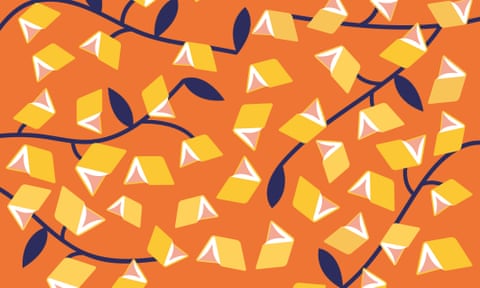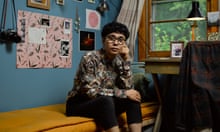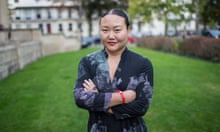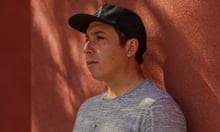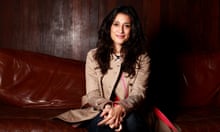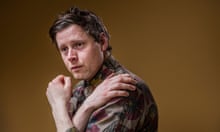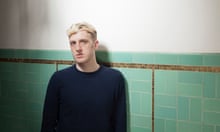Fiction
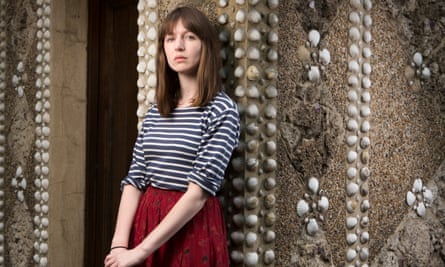
Sally Rooney
Irish writer was just 26 when her debut Conversations With Friends took the publishing world by storm last year. It’s a barbed, witty page-turner about being young and fragile in the new Ireland, set in a perilously privileged milieu of performance poetry and small magazines. Narrator Frances is out of her depth, negotiating love, sex, friendship and ambition while trying to maintain a brittle sense of self. Rooney has a ruthlessly beady eye and an effortless comic style. Her second novel, a love story across the class divide called Normal People, will be published in September.
Guy Gunaratne
Gunaratne worked as a video journalist reporting on post-conflict zones before writing his blazing polyphonic debut In Our Mad and Furious City, out next month. Set over 48 hours in a north London estate, where the killing of a “soldier-boy” by a “homegrown bredda” and the torching of a mosque spark a riot, it reveals London as a conflict zone for its five narrators. These include a would-be grime artist and a teenager resisting Islamic radicalisation, as well as older immigrants from Belfast and the West Indies.
David Chariandy
The Canadian writer’s masterly second novel, Brother, was published in the UK this month. It interrogates family, community and masculinity as it tells the story of Michael and Francis, the sons of a Trinidadian single mother, coming of age in the 1980s in a poor immigrant neighbourhood. “We were the children of the help, without futures.” In understated, classically beautiful prose it moves towards disaster with the terrible inevitability of a Greek tragedy.
Jessie Greengrass
Greengrass published her unusual and wide-ranging short story collection An Account of the Decline of the Great Auk, According to One Who Saw It last year; this February she followed it with her first novel Sight , now longlisted for the Women’s prize for fiction. Her narrator is agonising over whether to commit to parenthood, looking back on the trauma of her own mother’s death and remembering childhood holidays with her analyst grandmother. There are echoes of WG Sebald and Rachel Cusk in this thoughtful, digressive style that swirls together the historical and the personal, but Greengrass’s questing intellect and elegant prose are all her own.
Eley Williams
Small presses are making a big noise at the moment, and that’s down to such brilliant books as Attrib. and Other Stories, which took the Republic of Consciousness Prize for Small Presses this month. Williams had been publishing her playful stories in magazines for years, and it’s no surprise to learn that her PhD was on dictionaries: her stories focus on words and meanings, riddling away at the gaps between thought and speech, sound and silence, lovers and strangers. They
Politics and ideas

Mark O’Connell
O’Connell’s captivating book about transhumanism and “solving the problem of death”, To Be a Machine, which saw him navigate some of the stranger byways of Silicon Valley, was shortlisted for the Baillie Gifford prize, the Royal Society science book prize and recently the Wellcome prize. Having taken on immortality, the Dublin-based writer is set to tackle the end of the world, in what promises to be a companionable and quick-witted exploration of apocalyptic anxieties.
William Davies
One of the most interesting commentators on political ideas, Davies teaches political economy and sociology at Goldsmiths, University of London, and is the author of two books, The Happiness Industry and The Limits of Neoliberalism. He is as lively discussing Brexit and the culture of the Home Office as he is the current crisis in capitalism. His next study, due later this year, will be Nervous States: How Feeling Took Over the World.
Suzy Hansen
The author of the elegant and persuasive Notes on a Foreign Country: An American Abroad in a Post-American World, Hansen is based in Istanbul, where she moved from the US following 9/11. Hisham Matar hailed her debut as “remarkably revealing … a deeply honest and brave portrait of an individual sensibility reckoning with her country’s violent role in the world”.
Reni Eddo-Lodge
Eddo-Lodge’s debut book Why I’m No Longer Talking to White People About Race, published last year, has recently won the Jhalak prize – it was praised by the judges as a “clarion call for action”, which “not only holds up a mirror to contemporary Britain but also serves as a warning”. Marlon James called it “essential”.
James Bridle
Bridle is an increasingly talked-about artist and writer who considers the relationship between technology, culture and consciousness. Among the subjects of his art are drones and self-driving cars. His ambitious debut book, New Dark Age, which argues that the digital era is radically shifting the boundaries of human experience, is out in July.
Poetry

Kayo Chingonyi
Kumukanda, Zambian-born Chingonyi’s much feted debut, presented a fresh take on contemporary urban life shot through with an appreciation of traditional modes of living and storytelling. He reflects on identity and race, culture and masculinity with a thoughtfulness and lyrical elegance that conveys anger as well as a tender melancholy.
Ocean Vuong
Night Sky With Exit Wounds picked up a rare double when it was awarded the TS Eliot prize and the Forward best first collection award. Vietnamese-American Vuong’s work nods to both New York-school poets such as Frank O’Hara – close observations of street life, frankness about sex – and the historical myth-making of Homer. The Eliot judges hailed “the definitive arrival of a significant voice”.
Richard Osmond
Osmond’s job as a wild-food forager makes it unsurprising that his debut collection, Useful Verses, should be such a treasure trove of information. But what gives his poems energy is not just that they exhibit a deft authority on plants and poisons, remedies and roadkill, but that they are equally attuned to human and digital environments. The result is a work that reveals much about the world, both ancient and modern.
Tara Bergin
This Irish poet’s 2015 collection, This Is Yarrow, is a wryly unpredictable set of poems that challenges our familiarity with the world around us. Last year’s equally intense and funny The Tragic Death of Eleanor Marx explores the life and eventual suicide of Karl Marx’s daughter, the first translator of Madame Bovary. A rare originality of voice and vision.
Hannah Sullivan
The long poems that make up Sullivan’s debut, Three Poems, are wise and witty, and spaciously unfold an account of a young woman’s love, disappointment and resilience in New York City, with Heraclitean philosophical musings and autobiographical reflections on birth and bereavement.
Memoir and biography
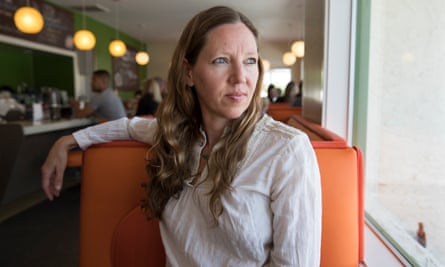
Paul Ferris
Football memoirs rarely produce great literature but Ferris’s The Boy on the Shed is a glistering exception, which sets a short career with Newcastle United against the background of a Catholic childhood in a Protestant stronghold of Northern Ireland. He’s witty, emotional and painfully self-revealing. If, as Alan Shearer intimates in the foreword, a second book is on the way, he may turn out to be the new Frank McCourt.
Edmund Gordon
How do you tell the life story of a woman who was, by her own admission, “a born fabulist”? Debut biographer Gordon disentangles myth from truth in The Making of Angela Carter, an elegant and well-judged life of the author.
Kapka Kassabova
The Bulgarian-born writer takes a journey through the mysterious region where her home country, Greece and Turkey meet. Border is a hybrid work that mixes memoir with travelogue as she putters across the land in an old Renault, recording the oral histories of the people she meets and crunching them with what she knows of the deeper past in an attempt to exorcise her own ghosts.
Patricia Lockwood
Already beloved for her silly, often filthy verse, Lockwood burst into the almost mainstream with her memoir Priestdaddy, centring on her father: a Catholic priest with five children and a penchant for guns, prog rock and cream liqueur. While her poetry is brilliantly bizarre, Priestdaddy revealed a dazzling new voice that flourishes in a longer form.
Maggie Nelson
The compelling topicality and novelty of her subject matter earns Nelson her place. The Argonauts is an uncategorisable book, that animates queer theory through the no-holds-barred story of her own love match with a trans man. Here are pregnancy, birth and family-making as you have never seen them before.
Graphic novels
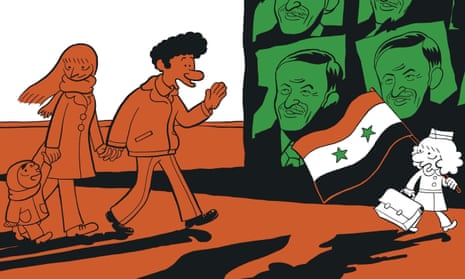
Kirsten Radtke
Imagine Wanting Only This begins with the death of Radtke’s uncle Dan – from a hereditary heart condition that could kill her – and moves through her young life, taking in love, backpacking, loneliness and visits to ruin after ruin. Her memoir is stuffed with fascinating anecdotes and great drawings that show everything from bus-borne squabbles to tight herds of sheep and abandoned cities. It ends in New York, where the 30-year-old illustrator and editor now lives, and this intelligent and passionate work makes you wonder where she’ll go next.
Hamish Steele
Steele works as an animator as well as a comic book artist, and humour and energy bubble through his work. His debut, Pantheon, a savage take on Egyptian myth, was self-published after a Kickstarter campaign before being picked up by NoBrow. His new book, DeadEndia: The Watcher’s Test, revolves around three amusement park workers and a genuinely haunted house.
Nick Drnaso
The Illinois native picked up an LA Times book prize for his excellent 2016 debut, Beverly, a series of sad and lyrical interconnected stories. It sets dysfunctional young Americans against an eerie backdrop of highways, motels and couches, lust and despair pushing up against the clean lines and pastel colours of his artwork. Drnaso’s latest, Sabrina, follows a US airman’s investigation of a missing woman.
Emil Ferris
My Favourite Thing Is Monsters emerged to wild applause last year. A brick of a book with something to treasure on every page, it takes the form of the journal of Karen Reyes, a 10-year-old obsessed with drawing, monsters and the fate of a woman who dies in her apartment block. Karen fills the diary with vibrant beasts and the details of her detective work. Ferris makes her humans and monsters leap off the page, and Book 2 (due in August) should be another cracker.
Riad Sattouf
Sattouf spent a decade writing for Charlie Hebdo, but only came to the attention of English-speaking readers in 2015, thanks to The Arab of the Future, which follows his childhood as he moves between France (where his mother was born), Syria (where his father was born) and Libya. The whims of Sattouf’s increasingly authoritarian father drive volumes one and two, which mix darkness, dry humour and sharp observation. Volume 3 is out in August.
Crime and thrillers
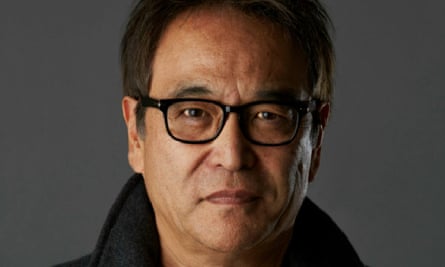
Jane Harper
Winner of the Crime Writers’ Association Gold Dagger, Harper’s bestselling first novel, The Dry, is both a riveting detective story and a powerful portrait of a small Australian town in the drought-stricken middle of nowhere, riven by poverty and alcoholism. Her second book, Force of Nature, which features the same investigator and concerns an elemental battle for survival in the unforgiving Australian wilderness, lives up to the promise of her stunning debut.
Joseph Knox
Sirens, Knox’s debut, is a pungent slice of urban noir featuring disgraced Manchester detective Aidan Waits. Having blotted his copybook by stealing drugs from the evidence room, Waits is forced to go undercover and finds himself deep in a world of ruthless drug barons and corrupt politicians. The start of what promises to be a classic series – as proved by the equally vivid and uncompromising follow-up, The Smiling Man.
Joe Ide
Set in Long Beach, California, Ide’s novel, IQ, is the start of a projected series featuring Isaiah Quintabe, a modern day African American incarnation of Sherlock Holmes. We learn his back story – derailed in high school when his brother was killed, and turning to crime before realising his true calling – as he finds out who is trying to murder a famous rapper. A second outing, Righteous, was published in February; both books are sharply observed and crackling with energy.
Sabri Louatah
A bestseller in the author’s native France, Savages: The Wedding is the first novel in the Saint-Etienne Quartet. It’s the eve of the presidential election, and it looks as if Idder Chaouch is about to become the first Algerian premier. To some, the “French Obama” holds the promise of a post-racial society based on liberty, equality and fraternity, but not everyone agrees. Exhilarating, sharp-edged, and complex, this is a compelling hybrid of family saga and socio-political thriller.
CJ Tudor
In The Chalk Man, 12-year-old narrator Eddie Adams enjoys communicating with his friends using a secret code of chalk figures – until a series of anonymous drawings leads to the discovery of a dismembered girl in the woods. Fast-forward 30 years and Eddie receives a visit from an old friend – and a drawing of a noosed stick-man arrives in the post. This assured debut is very much in the Stephen King vein – creepy with plenty of menace.
Children and young adult
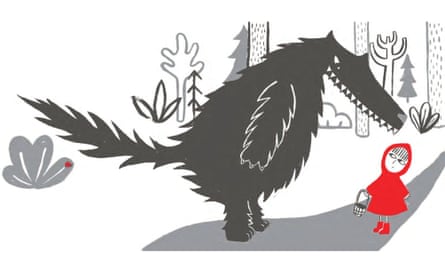
Bethan Woollvin
Little Red, a feminist retelling of Little Red Riding Hood with a grisly, child-empowering edge, won Woollvin the Macmillan Illustration prize in 2014. Her second picture book, a prince-free Rapunzel, features the same mixture of stark black and white and a single colour. Her words share this lack of obfuscatory prettiness, a deadpan, terse narrative voice complementing her sharp illustrative style. Look out for her forthcoming Hansel and Gretel.
Joseph Coelho
Overheard in a Tower Block, Coelho’s newest poetry collection, was longlisted for the 2018 Carnegie Medal. Arguing parents become electrical forces or duelling knights; the bin-chute mouth of a block is fed the stuff of its residents’ lives. Rich with metaphor and secret meaning, his poetry is deeply welcoming, and his sensibility is both mythic and urban; his freed Prometheus, unearthed from “eons of eagle droppings”, hears “the god-whisper of a city, the electric thrum of buildings, the digital hiss of a new world.”
David Solomons
The Scottish screenwriter represents the best in contemporary comic writing for children – splendidly zany, full of irresistible trivia,but never scrimping on the emotional undertow that ensures longevity and heart. His first book for children, My Brother Is a Superhero, is subtitled “I could have been one too, except I needed a wee”; the story of comic geek Luke and his older brother Zack, unfairly given superpowers by a visiting alien, it won the Waterstones prize for children’s fiction in 2016, and its two sequels have since been flying off the shelves.
Lucy Strange
The Secret of Nightingale Wood, Strange’s debut novel for age 8-12, is set just after the first world war, and features Henry, a determined heroine grieving her brother’s death, protecting her younger sister Piglet, and contending with sinister doctors who conspire to commit her mother to an asylum. Strange elegantly blends a sense of period with compelling emotion and excitement. Her new novel, Our Castle by the Sea, is due in November.
Tomi Adeyemi
The Nigerian American author’s debut, Children of Blood and Bone, has generated considerable excitement, with film rights already sold. The first in a trilogy, this ambitious book is told from three perspectives; central is that of Zélie Adebola, who takes on the monarchy in a bid to restore magic to the world of Orisha.
Literature in translation

Maylis de Kerangal
Winning last year’s Wellcome prize for Mend the Living, her brilliant evocation of a day in the life of a heart as it is rushed from one body to another, should raise the French author’s profile, but as yet only two of her novels have made it into English. In both she makes character subservient to scenario, whether dealing with coronary transplant staff or workers on a six-lane suspension bridge in a fictional US town.
Samanta Schweblin
Argentinian Schweblin’s brilliant and terrifying debut, Fever Dream, unfolds like a hallucination. A sick woman is confronted with a revenant child in a dialogue that combines the superstitions of a rural society with fears about agricultural abuse by big business, in a novel that was shortlisted for last year’s Man Booker International prize.
Olga Tokarczuk
This time last year, the Polish novelist was the biggest star you’d never heard of, but Flights put her on the map. This dazzling novel of fragments makes a passionate plea for connectedness through stories that somersault through time and space. Her back catalogue is now being published, with the Blakean Drive Your Plow Over the Bones of the Dead due this year, followed by her historical epic, The Books of Jacob, one of the biggest literary bestsellers in Polish history.
Andrés Barba
After surviving the car accident that killed her parents, a wounded and traumatised seven-year-old girl is sent to an orphanage with her only surviving “friend”, a doll apparently brought to life by her distress. In Such Small Hands, Barba plays with the conventions of the ghost story to create a powerful fable of the malice and the erotic power play of children too young to put their fears into words.
Ahmed Saadawi
Absurdist morality fable meets horror fantasy in Frankenstein in Baghdad, as a victim of sectarian violence is brought back to life in the aftermath of the US invasion of Iraq. Saadawi unspools an apparently endless causal chain of folly, corruption and tribalism.
Science and nature

Eugenia Cheng
The mathematician remembers the day her mother first told her about graphs – she felt as if her brain was contorting, and it’s a feeling she still gets when doing research. It’s one her readers can share. Beyond Infinity begins with an energetic exposition of endlessness, before exploring the mathematical territory the concept opens up with the help of iPods, snorkelling and Winnie-the-Pooh. The Art of Logic is due in September.
David George Haskell
On a cold January hike in 2004, Haskell, a biologist, found himself confronted with a choice. He could carry on writing scientific papers, following his enthusiasm for poetry and meditation on the side, or he could bring these interests together. The result was The Forest Unseen, a lyrical account of the year he spent returning to that very spot. His 2017 book The Songs of Trees explores the interconnectedness of nature through portraits of 12 individual trees.
Lindsey Fitzharris
Fitzharris’s hugely entertaining debut The Butchering Art told the story of Victorian medicine through the life of Quaker surgeon Joseph Lister. A quiet man who stood out from his showy contemporaries, Lister pioneered antisepsis. Fitzharris’s second book is already in the making: a history of plastic surgery told through the story of surgeon Harold Gillies, an eccentric figure who worked in the aftermath of the first world war.
Amy Liptrot
After a childhood in Orkney, Amy Liptrot launched herself into the London clubbing scene with perilous consequences. The Outrun is a gorgeously evocative account of the role her home island played in helping to restore her to health.
Cordelia Fine
A psychologist, Fine puts her interest in the neuroscience of gender down to being a typical academic parent. Delusions of Gender
is a witty and elegant account of the dodgy science and persistent biases behind the notion of the gendered brain. Her most recent book, Testosterone Rex, won the Royal Society science book of the year prize in 2017.
Science fiction and fantasy
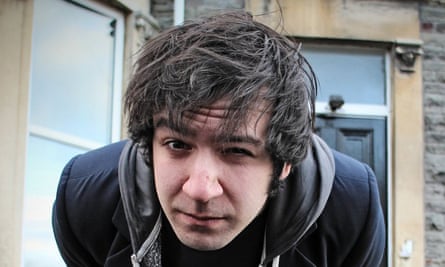
Nnedi Okorafor
The US author has many awards under her belt, but is only now coming to prominence in the UK. Rooted in her Nigerian heritage, her work melds traditional future narratives with lyrical folkloric fables, African locales with far-future planetary settings. Through strong female characters she explores inequality, gender politics and environmental degradation. Her multi award-winning Bin is a good place to engage with her diverse, complex, character-based science fiction and fantasy.
Stefan Mohamed
Mohamed won the unpublished writer’s category of the Dylan Thomas prize with Bitter Sixteen in 2015. It was the first volume of a trilogy featuring superheroes, talking dogs, monsters and the apocalypse, refreshingly expressed in a flip, deadpan style. Following the fortunes of Stanly Bird, who finds himself in possession of superpowers – telekinesis and the ability to fly – it wittily delineates youth and pop culture. Mohamed’s fourth novel, Falling Leaves, is out now.
Naomi Booth
Bradford-born Booth comes to writing from academia: her PhD research on the literary history of swooningfed into the quirky The Lost Art of Sinking, winner of the 2016 Saboteur award for best novella. Booth hit her stride with 2017’s Sealed, which explored themes of paranoia, motherhood and alienation set in an Australian outback gripped by a terrifying plague. She’s known for searing personal narratives written from the perspective of women on the brink of psychological breakdown.
Nina Allan
Allan’s 2014 debut, The Race, assembled from four linked novellas, featured fractured, vulnerable characters in a near-future England. The Rift (2017), explored themes of loss, alienation and guilt in a narrative shifting between contemporary Britain and the alien world of Tristane. Her literary sensibility fuses the fantastic and the mundane to great effect.
Tristan Palmgren
The US writer burst on to the SF scene this year with a stunning novel about an extraterrestrial who has arrived in 14th-century Italy to study the black death. The juxtaposition of alien and human cultures at the heart of Quietu allows Palmgren to ask a host of knotty philosophical questions, as well as to tell an emotionally affecting story. The sequel, Terminus, is due out later this year.
